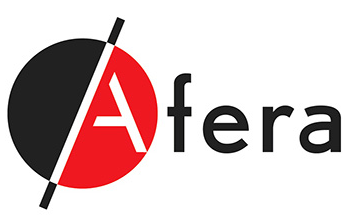
Deforestation Regulation (EUDR)
What will you find in this section?
- What is the Deforestation Regulation (EUDR)?
- How is this relevant for the adhesive tape industry?
- Status of legislative process
- Timeline of measures and actions
- What is Afera doing about the EUDR?
- References
Officially adopted on 31 May 2023, the E.U. Deforestation Regulation (EUDR) 2023/1115 is a significant initiative aimed at curbing global deforestation and forest degradation by ensuring that products sold within the E.U. do not contribute to these environmental issues. This regulation aligns with the European Green Deal’s broader objectives and the E.U.'s commitment to sustainability, climate neutrality and biodiversity protection. Under the EUDR, businesses are required to ensure that the commodities or products they sell in the E.U. market are deforestation-free (commodities must not have been produced on land deforested after 31 December 2020) and legally sourced (compliance with laws of the producing country must be demonstrated clearly).
How is this relevant for the adhesive tape industry?
The impact of the EUDR on the adhesive tape industry is twofold: some raw materials and some adhesive tapes are considered relevant products under EUDR, and are therefore subjected to due diligence and reporting requirements. Only products listed in Annex I of the EUDR are considered relevant products. Products are listed based on Combined Nomenclature (CN) codes.
Raw materials based on paper, including backing, release liners and cores, must comply with EUDR requirements as long as they are not made from recycled paper. Additionally, natural rubber (CN code 4001, 4001 22 00) used to manufacture natural rubber-based adhesives is also a relevant product under EUDR. All these raw materials must comply with EUDR requirements for relevant products.
Adhesive tapes with a paper backing (CN codes starting with 48) are considered relevant products under EUDR, independently of the adhesive coating used.
Other adhesive tapes (including those with plastic backing, or natural rubber adhesives, e.g. CN codes 3919 10) are not considered relevant products under EUDR.
Status of legislative process
The EUDR is currently in force, with the extended timelines allowing businesses additional time to comply with the new requirements. Looking upstream, companies are expected to utilise this period to adapt their supply chains and ensure adherence to the regulation's standards. Tape manufacturers sourcing paper-based backing or liners, natural rubber or any other regulated commodities must perform detailed due diligence, tracing and verifying that sourcing practices comply (providing geo-location data and other evidence) with the deforestation-free criteria. Product documentation and supplier agreements must show compliance with EUDR standards. A training system of reporting and a system of reporting on due diligence (a registry for Due Diligence Statements (DDS)) has been created by the European Commission. The EUDR is already causing price increases of natural rubber, since it is produced outside of Europe. The limited capacity of European production is also expected to affect prices.
Seeking to simplify the Deforestation Regulation, the European Commission published an updated guidance document and a Frequently Asked Questions document for the EUDR. The clarifications impact the frequency of the submission of due diligence statements (DDS), reuse of DDS when reimporting, authorised representatives to submit DDS on behalf of companies, how to ascertain that due diligence was carried out upstream.
Timeline of measures
- 29 June 2023: EUDR entered into force. It would apply from 30 December 2024.
- 14 November 2024: The European Parliament voted to approve a one-year postponement of the EUDR's application date.
- 2 December 2024: The Information System of the EUDR for submitting compliance went live.
- 19 December 2024: The Council of the EU formally adopted the regulation to delay the EUDR's application by 12 months.
- 30 December 2025: Start of application of EUDR. By this date, all large companies must comply with due diligence requirements of all relevant products and raw materials, independent of origin.
- 30 June 2026: Mandatory due diligence checks and reporting requirements will become enforceable for SMEs.
- 2028: Planned re-evaluation of additional changes to EUDR.
What is Afera doing about the EUDR?
- Afera’s RA-WG EUDR taskforce is preparing a guidance with decision-trees on how to decide if a product is “relevant” and what role a company plays (“operator” or “trader”) under EUDR.
- The taskforce is also monitoring and exploring:
- If different customs tariffs for natural rubber tapes using a film-based material will help level the market playing field outside the E.U.
- A potential system for compliance along the supply chain, LiveEO.
- If further clarification on the role of converters can be obtained.
- Developments within the system, timelines and application.
- Raising industry awareness that paper tapes and tapes with rubber adhesives are within scope.
- How the European Union's deforestation regulation (EUDR) is integrated into the EU's customs system via TARIC (the EU's integrated tariff database) is detailed in this document.
References
- Commission Regulation (E.U.) 2023/1115
- Regulation on Deforestation-free products - European Commission
- The Information System of the EUDR
- TRACES (Trade Control and Expert System)
- EUDR Acceptance system (training platform)
- Subscription to EUDR updates
- Potential system for compliance along the supply chain: Live EO
- Combined nomenclature codes
- TARIC data created for Regulation (E.U.) 2023/1115 on deforestation and forest degradation

